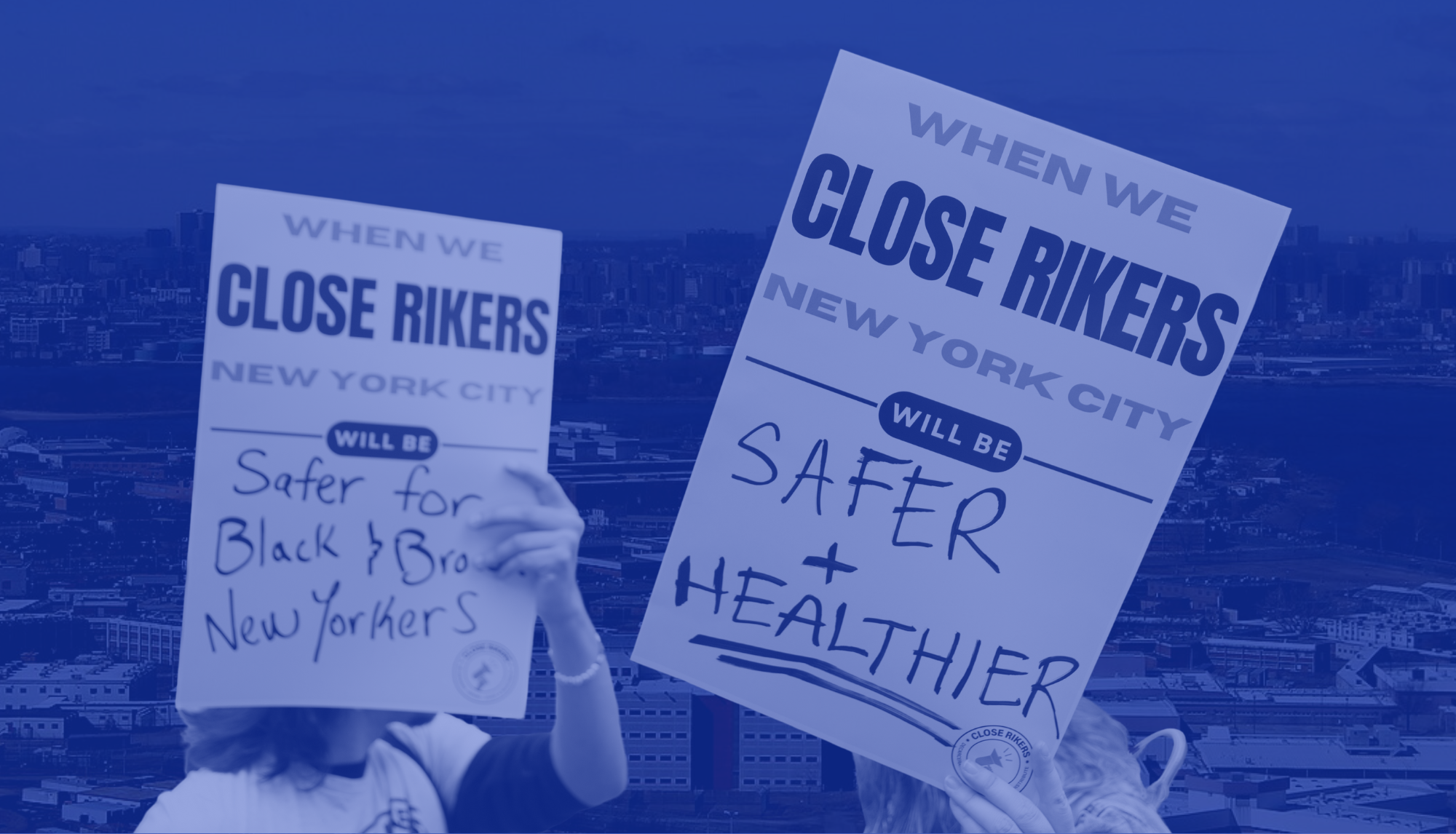Rikers Island Must Close. A Renewed Commission Will Lead the Way.
Rikers Island must close. That’s why a renewed Lippman Commission—bringing together leaders from across the city—is more urgent than ever.
Rikers Island must close—swiftly, safely, and with care for all New Yorkers.
That’s why City Council Speaker Adrienne Adams, with the full support of Mayor Eric Adams, relaunched the Independent Rikers Commission – aka the Lippman Commission 2.0. The Commission, chaired by former Chief Judge Jonathan Lippman, will take a renewed look at how to close the jails on Rikers once and for all.
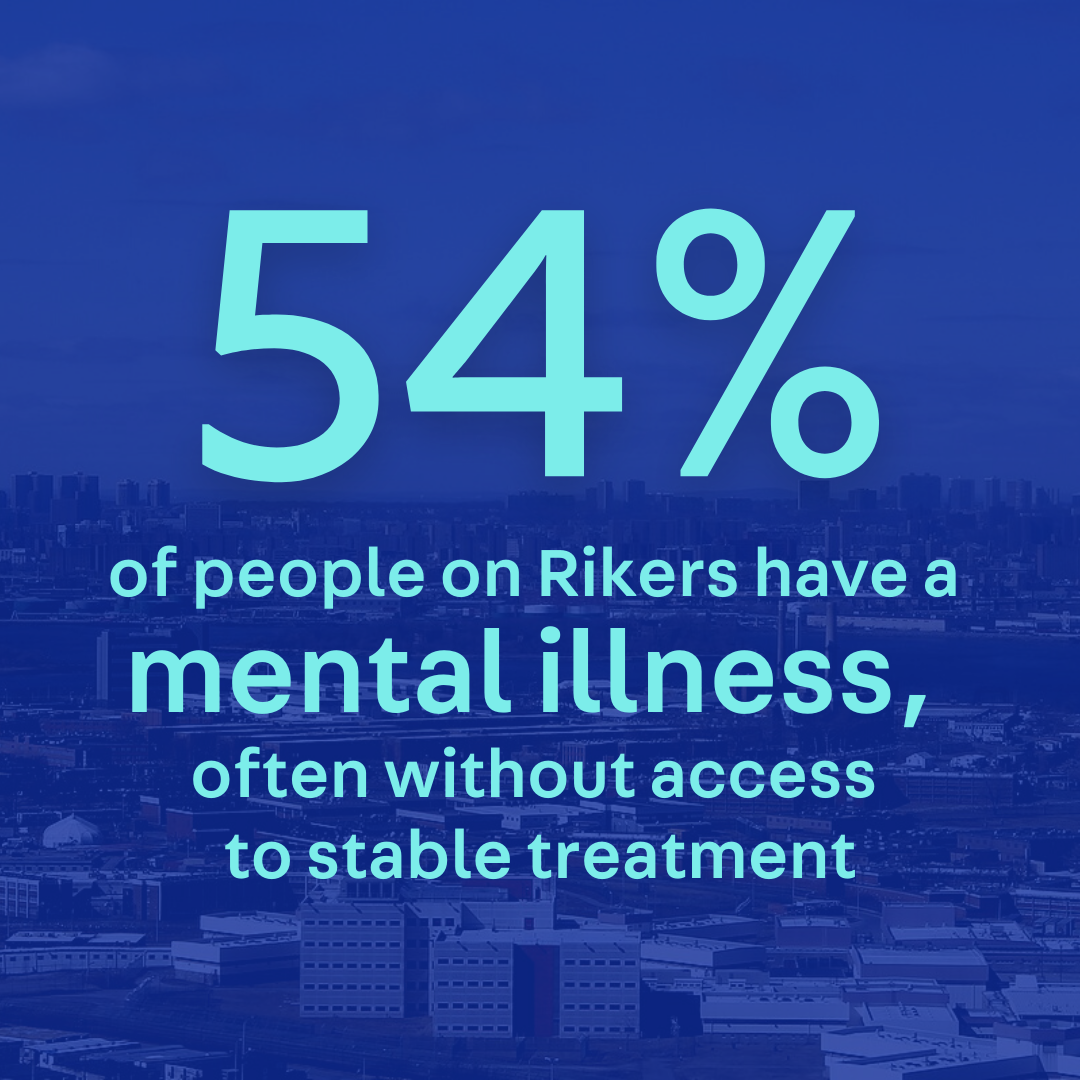
As Judge Lippman put it, Rikers is a moral stain on the soul of our city. Black and Brown people make up 90% of those incarcerated in its jails. The same percentage of people detained there haven’t been found guilty of a crime, spending an average of 260 days simply waiting for their day in court—as crime victims wait for their day in court, too. More than half of those held in the jail complex have been diagnosed with a mental illness, underscoring the need for more stable treatment and supportive housing options in the community, including therapeutic beds for people in urgent need of care.
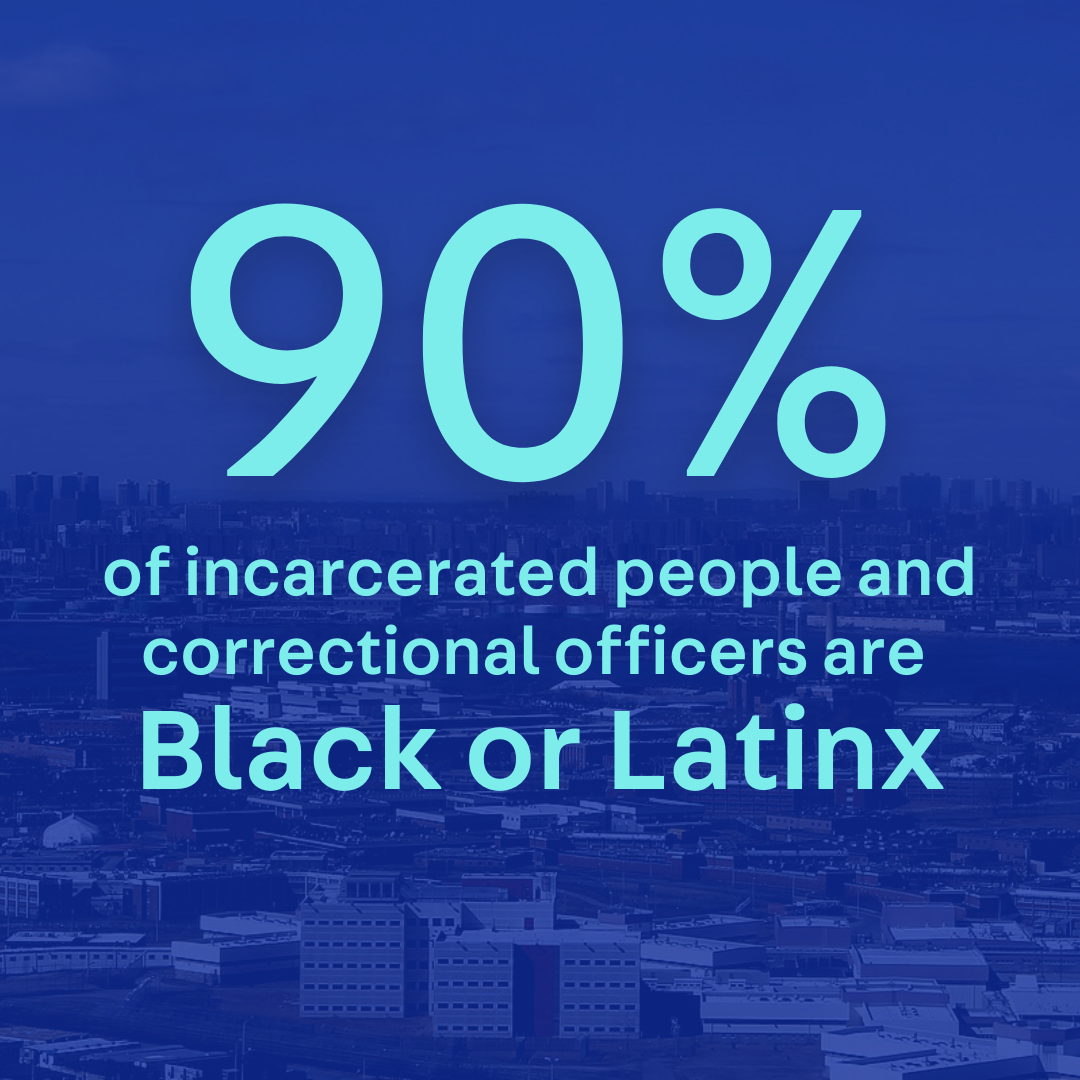
Federal monitors have also raised the alarm about years of spiraling violence and deteriorating infrastructure on Rikers, both of which threaten the safety of all those in the complex. So far, nine people have died in 2023 while held in city jails.
In 2016, former City Council Speaker Melissa Mark-Viverito launched the first Lippman Commission, tasked with creating a plan to fundamentally transform the criminal justice system in New York City. Over the course of a year, the Commission’s 27 members—leaders in government and philanthropy, scholars and researchers, and people who had spent time on Rikers—set to work gathering information, meeting with leading experts, engaging communities, and learning from other jurisdictions.
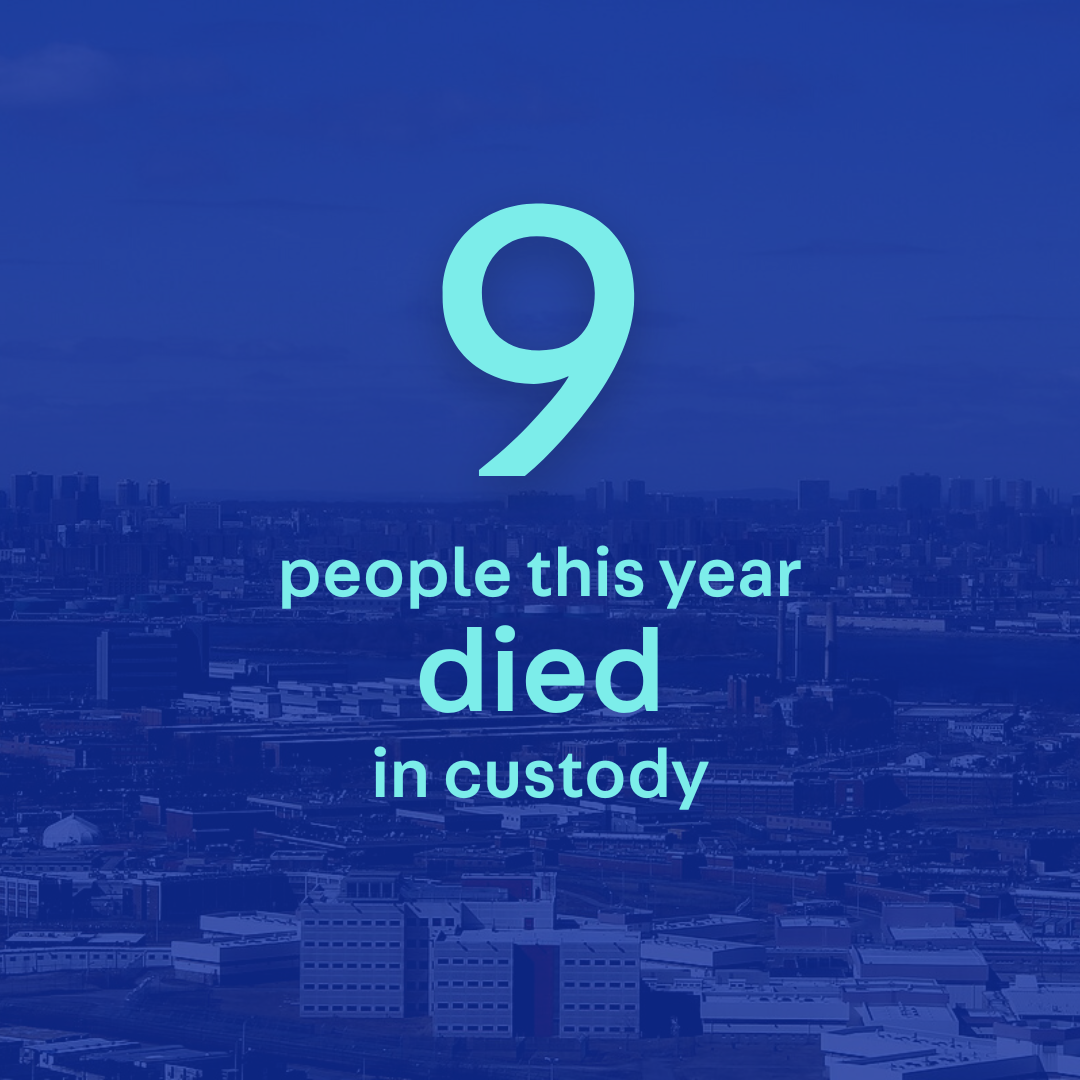
The Commission embarked on that journey with “no predetermined judgment,” as Commission Chair Judge Lippman would write in 2017, but it came to a clear verdict: the jails on Rikers Island must be shut down. The Commission’s vision for doing so included a comprehensive strategy to safely reduce the number of people in jail while replacing Rikers with more humane facilities no longer cut off from courts and communities. It also identified ways of reimagining Rikers Island to pay respect to those who have suffered there and support the city’s future with renewable energy, waste treatment, and other crucial infrastructure.
The city’s jail population steadily declined after the Commission released its final report, but has been on the rise again after a sharp drop in the first months of COVID-19 gave way to an upward trend. From 2017 to 2021, the average number of people held in NYC jails on any given day fell from 9,500 to 4,921. By 2022, that average had jumped back up to 5,559, and as of October 1 of this year, the city’s jail population stood at 6,172. A growing jail population, coupled with escalating violence and deteriorating conditions on Rikers, make the task of renewing our strategies to close the jail complex even more vital.
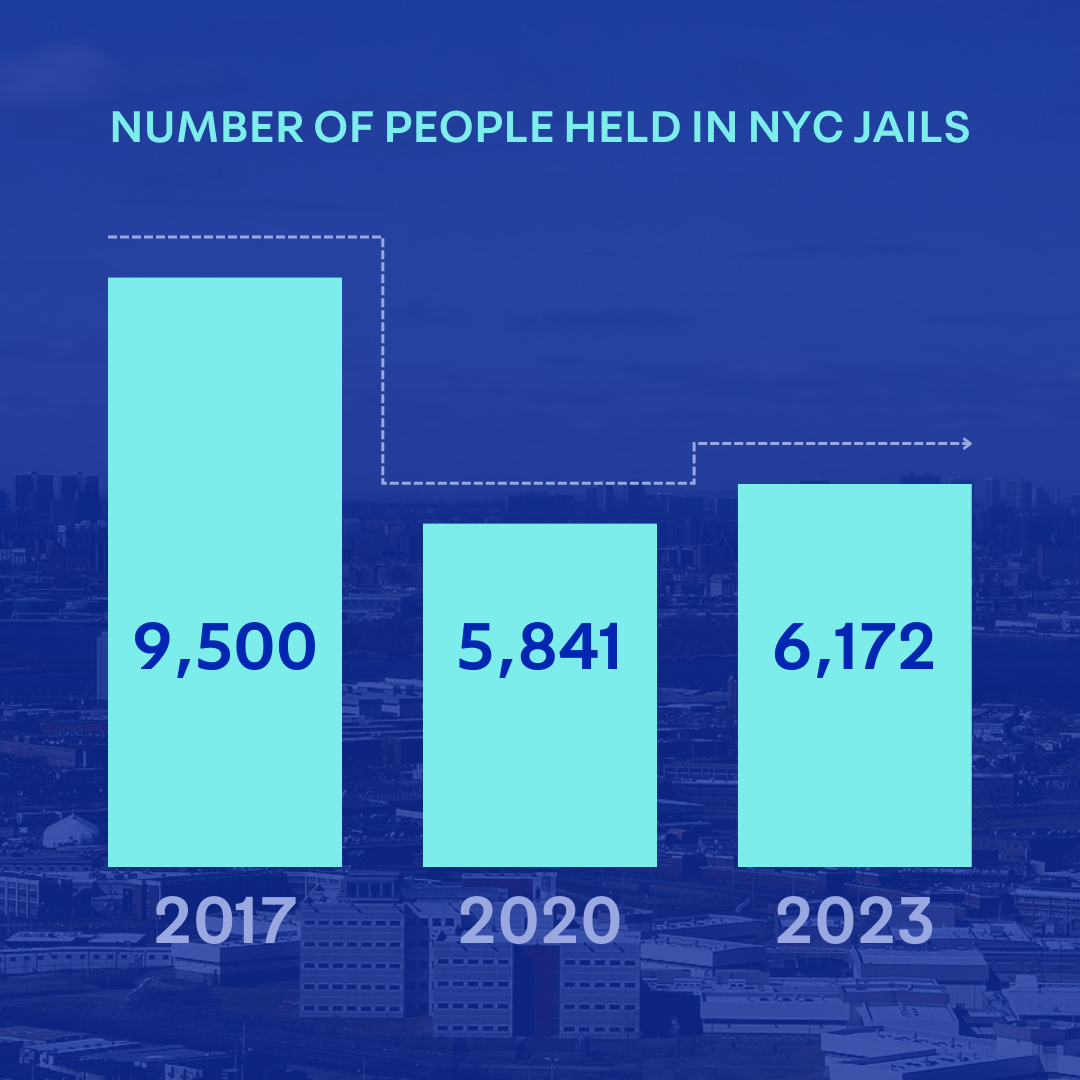
Data as of October 19, 2023 provided by the Department of Correction via the Office of the New York City Comptroller.
Yet our tools and know-how have also increased since the first Lippman Commission. Perhaps most notably, New York has seen reforms that have drastically reduced the use of bail and incarceration for people awaiting trial. Supervised Release, which keeps people out of jail and connected to community-based services while they wait for their cases to be resolved, has expanded significantly. Our knowledge about how to keep communities safe while reducing the use of jail is more robust than ever, provided that we have the will to put it into action.
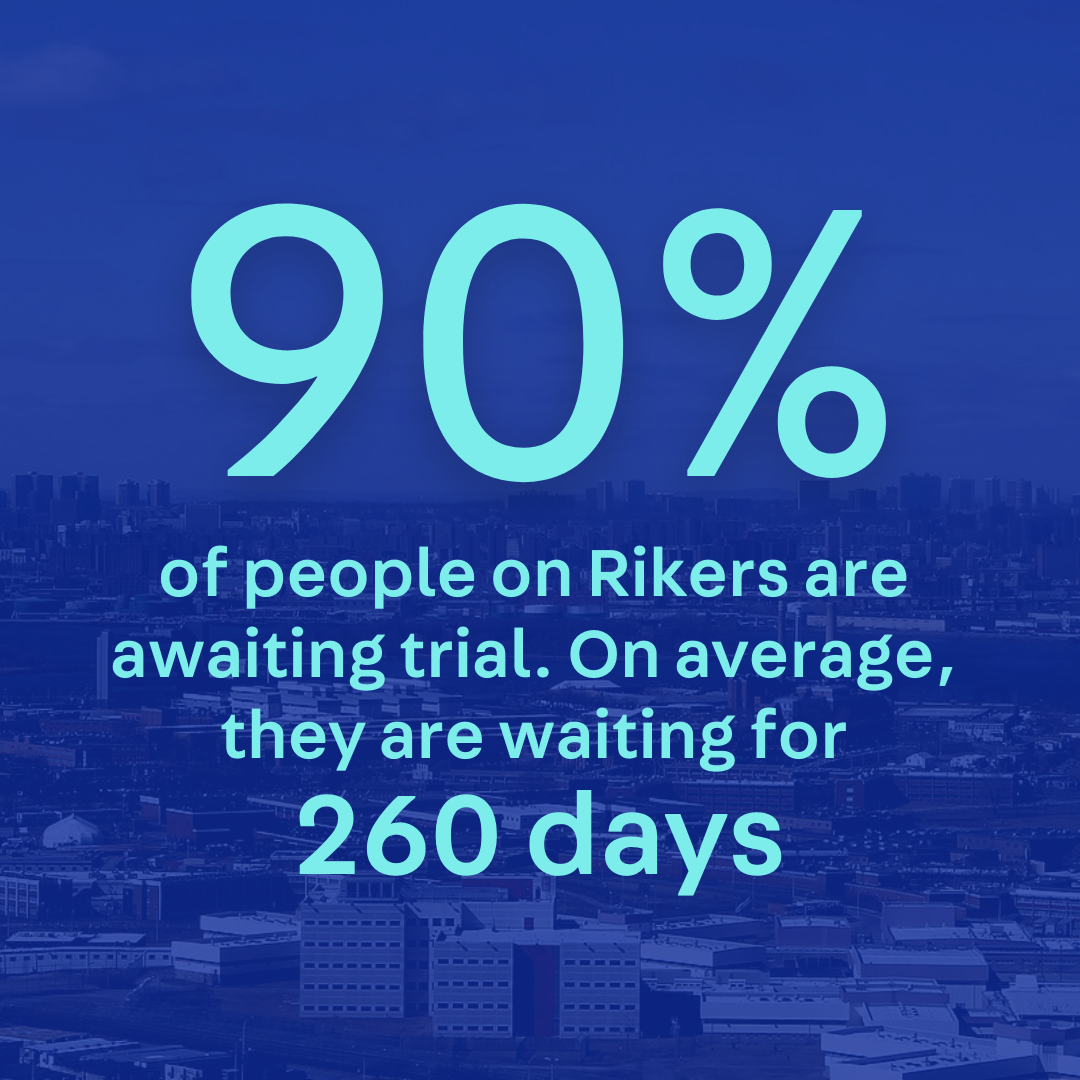
The Lippman Commission 2.0 is an opportunity to leverage this knowledge and make the most of the tools we have. Leaders of all backgrounds in government, community, and non-profit organizations—including the Center’s executive director, Courtney Bryan—will work together to come up with a refreshed, realistic action plan to overcome the obstacles that stand in the way of closing Rikers, from case processing delays to widespread lack of access to stable, community-based mental health treatment.
The task before us will not be easy or frictionless. But it’s absolutely necessary in order to put an end to the senseless suffering and steep costs generated by Rikers Island and create a safer, more just New York City for all. The time has come to turn the page on these notorious jails and start a new chapter for our city.


